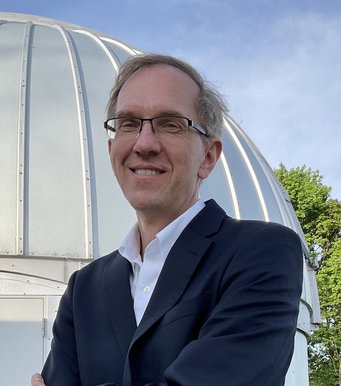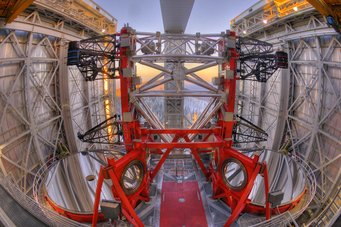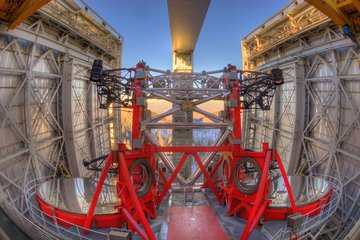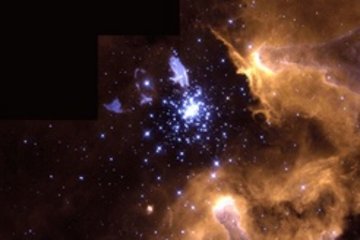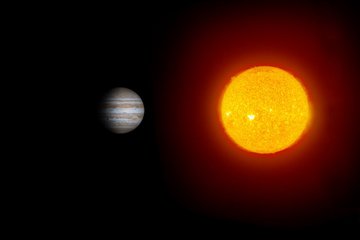Announcing the new Director of the Large Binocular Telescope
The Large Binocular Telescope Observatory (LBTO), one of the largest and most advanced optical telescopes in the world, is proud to announce the appointment of its new Director, Prof. Joseph Shields, who will assume the position effective June 06, 2022.
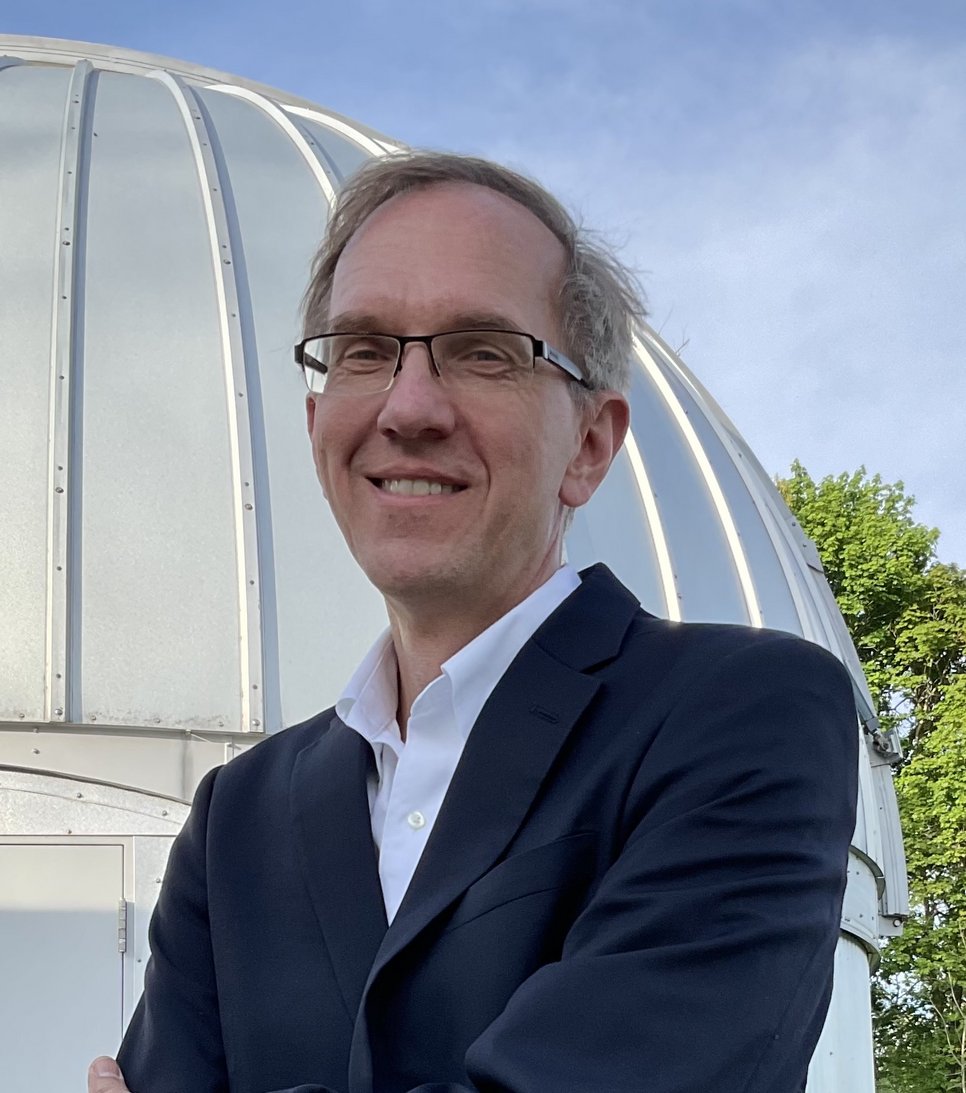
With its two mirrors, each 8.4 meters in diameter, the Large Binocular Telescope (LBT) is one of the largest single optical telescopes in the world. It is a project of institutions from the USA, Italy, and Germany, jointly responsible for constructing, operating, and developing high-precision measuring instruments. Germany’s share of 25% is represented by the LBT-Beteiligungsgesellschaft (holding company), to which the Max Planck Society (MPG), the Leibniz Institute for Astrophysics Potsdam (AIP), and the University of Heidelberg belong. Three Max Planck Institutes (MPI) represent the MPG: the MPI for Astronomy (MPIA) in Heidelberg, the MPI for Extraterrestrial Physics (MPE) in Garching, and the MPI for Radio Astronomy (MPIfR) in Bonn. Other universities, such as in Bochum, make significant contributions to this extraordinary telescope.
Effective June 06, 2022, Prof. Joseph Shields will become the new Director of the LBT. Dr. Shields is currently Vice President for Research & Creative Activity and Dean of the Graduate College, and the former Chair of the Department of Physics & Astronomy at Ohio University, USA.
Dr. Shields received his bachelor’s degree from the University of Kansas and his Ph.D. in Astronomy from the University of California at Berkeley. He held a postdoctoral appointment at the Ohio State University and a Hubble Fellowship at the University of Arizona before joining the faculty at Ohio University. In his research, Shields studies the physics of supermassive black holes in galaxies, using both ground-based and space-based observatories. He is also interested in the interstellar medium, star formation, and supernovae. Dr. Shields is an author of more than 110 scientific articles in the peer-reviewed literature and served as a Scientific Editor of the Astrophysical Journal for four years.
The LBT Board of Directors appointed Prof. Shields to serve as the observatory’s new Director following an extensive international search.
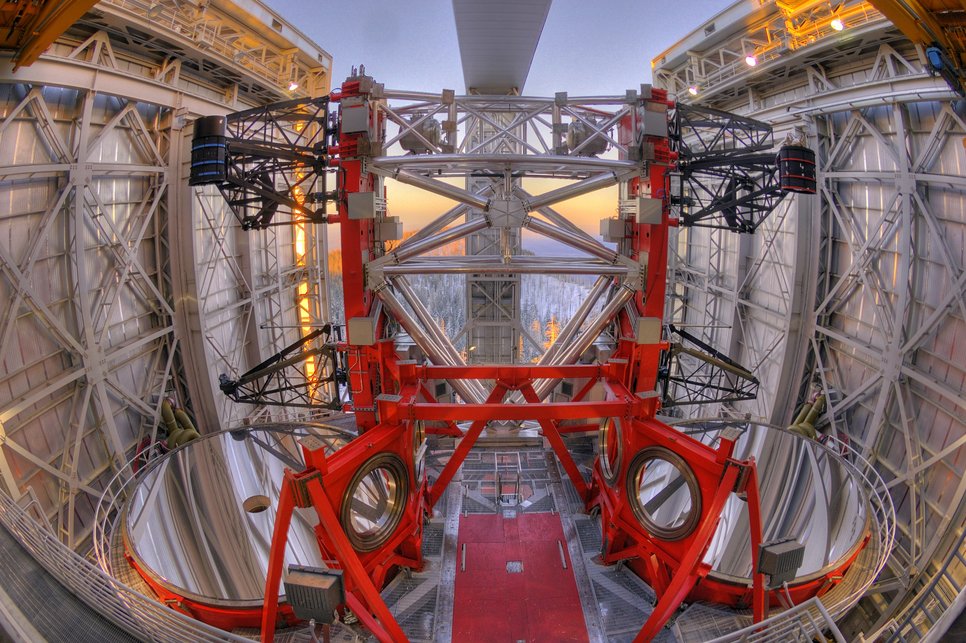
“We are excited to welcome Joe and look forward to working with him to maintain the prominent position of LBT as a world-class astronomical facility,” stated Adriano Fontana, Chair of the LBT Board of Directors. “Joe has a unique combination of astronomical experience, scientific vision, and managerial capabilities that make him the perfect match for LBT. Joe will build on the unique role of LBT in fostering new astronomical discoveries and the development of cutting-edge observational techniques associated with adaptive optics and interferometry.“
In accepting the Director position, Shields commented: “I am pleased and honored to have the opportunity to lead the talented LBTO staff during the observatory’s next phase as a pioneer in the realm of extremely large optical telescopes. The LBT has a storied history and vibrant future in technological innovation and astronomical discovery, enabled by the distinctive expertise of its partner institutions.”
The LBT Board of Directors also extended its appreciation to Dr. Christian Veillet, who successfully led the observatory during the last ten years. He completed the installation and commissioning of the initial suite of scientific instruments.
LBT is a unique astronomical facility. Located on Mt. Graham in southeast Arizona, at an elevation of 3200 meters, the LBT has two 8.4-meter mirrors. They are mounted side-by-side like a pair of binoculars for a combined collecting area of a single 11.8-meter telescope. This unique design gives it the capabilities of a 23-meter telescope in some observing modes, making it the first of the next-generation extremely large telescopes.
Additional Information
The LBT is an international collaboration among institutions in the United States, Italy, and Germany. LBT Corporation partners are: The University of Arizona on behalf of the Arizona Board of Regents; Istituto Nazionale di Astrofisica, Italy; LBT Beteiligungsgesellschaft, Germany, representing the Max-Planck Society, The Leibniz Institute for Astrophysics Potsdam, and Heidelberg University; The Ohio State University, representing OSU, the University of Notre Dame, the University of Minnesota and the University of Virginia.
